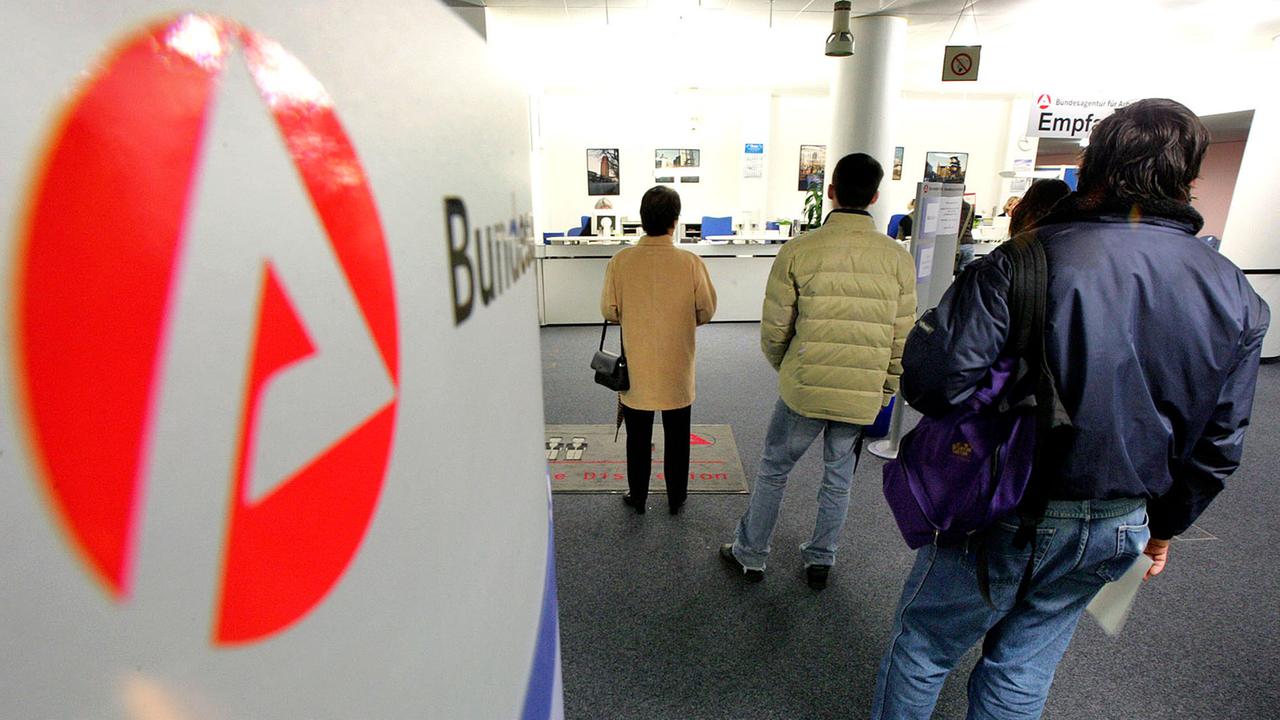analysis
Labor Minister Heil wants stricter sanctions for some recipients of civil benefit. But how much does this help with integration into the labor market? Experts warn of “side effects”.
Promote more, demand less: This was the maxim of citizens’ money that Federal Labor Minister Hubertus Heil (SPD) issued when reforming basic security. The idea: With more support offers and a little less pressure, the unemployed should be placed both more sustainably and in better-paid jobs. The sanctions for reporting and cooperation violations have been reduced to a maximum of 30 percent. The Federal Constitutional Court had previously warned of this.
Now, in the budget crisis, Heil wants to restore basic security – and tighten the penalties again, just a few months after they were weakened. Anyone who refuses a job will be able to have the standard rate of currently 563 euros canceled completely in the future. The rent and heating costs should continue to be paid. Anyone who “refuses all offers must expect harsher consequences,” Heil told the “Bild” newspaper. This is intended to address a few “who persistently refuse to accept reasonable work,” according to the reasoning.
What experiences do job centers have?
Heil also argues with the needs of the job centers. Also upon request from tagesschau.de Some job centers respond in this sense. “For some of the citizens’ benefit recipients, the risk of financial losses is the decisive factor in working constructively with the job center,” explains Diana Stolz, head of social affairs for the Bergstrasse district, who is responsible for the local job center of the southern Hesse district.
But how big is the impact of sanctions, especially harsher ones? Joachim Wolff, head of the basic security and activation department at the Institute for Labor Market and Vocational Research (IAB), says: “There are now a whole series of studies that show that sanctions increase transitions into employment in the short term.” However, it is not possible to say exactly how strong the effect is because all studies are designed very differently. There are also economic effects. “In fact, it also shows that stricter sanctions tend to have a greater impact on transitions into the job,” says the basic security expert.
But sanctions also act indirectly as a deterrent. “I don’t need to be sanctioned. It’s enough that I know that there is an option so that I can adapt my behavior under certain circumstances,” says Wolff. But how big this effect is has so far been little researched. The labor market expert is currently working on a study on this.
In the long term, those who are sanctioned end up in more unstable jobs
“But the whole thing is a double-edged sword,” emphasizes Wolff. Because there are some undesirable side effects. Studies show that there are advantages to getting back to work as quickly as possible in order to avoid being permanently eliminated. But another IAB study comes to the conclusion that although those who are sanctioned find a job more quickly in the short term than those who are not sanctioned, the effect is reversed in the long term. In a five-year comparison, people who have received a sanction are even slightly more likely to be unemployed. They also earned less than the comparison group.
This is contrary to the main goal that Heil was aiming for with the citizen’s money: to get people into sustainable and adequate employment from which they can live. And the threat of a 100 percent sanction for not accepting a job could intensify this effect again.
There are also other problems, especially with harsh sanctions. “In a 2018 study, 30 to over 50 percent stated that they no longer trust their integration specialist after a full sanction,” says Wolff. “That’s not helpful for finding work.”
Is the focus really only on “persistent” objectors?
There is also criticism of the accuracy of the measure. Hubertus Heil told the “Bild” newspaper that the planned tightening measures should affect “total refusers” who permanently refuse to cooperate. “That’s not what’s in the draft law,” says social rights activist Harald Thomé. “There is a clear risk that this sanction rule will be applied broadly, i.e. in the event of rejection or termination of work, which would then result in the loss of all benefits.”
Then there will be “no more money for food, no money for electricity, and no money for telecommunications,” he explains. The consequences: There is a risk of indebtedness, especially because the citizens’ benefit is so low that recipients cannot build up any reserves.
“Sanctions primarily affect the most vulnerable”
The Wetzlar unemployment initiative WALI in the Lahn-Dill district of Hesse works with citizens’ benefit recipients with psychosocial problems, such as anxiety disorders or addiction problems. Here they are stabilized again and made fit for the job market, for example by planning and preparing food for the other participants, with gardening or creative courses.
Work instructor Stefan Wagner is concerned about the tightening of the situation: “Sanctions particularly affect the most vulnerable.” At WALI he notices that many people are afraid to empty the mailbox or open mail. If a job offer comes along during a bad phase and is then overlooked, those affected would quickly be left with nothing. With potentially dramatic consequences: indebtedness, social, psychological or health problems become more severe. “And there are a lot of people like that in the Citizens’ Fund. Much more in number than you think.”
Children could be affected
Some districts that operate job centers themselves also point out these risks. For example, Christel Sprößler, head of the social and youth department in the Darmstadt-Dieburg district, is responsible for the local municipal job center. “A total cancellation leads to absolute hardship, especially if there are children involved. Although rents are not affected in these considerations, the lack of supplies for people can also lead to loss of housing, which continues to make it drastically more difficult to return to the job market.”
She also observes that the reason for a lack of cooperation is not so much unwillingness but health impairments and mental illnesses. Only a very small group of people are absolute objectors.
Doubts about constitutionality
The social rights lawyer Thomé believes that the planned 100% deletion of the standard rate is unconstitutional in any case. “At least food vouchers should be provided, and the electricity and telecommunications allowances would also have to continue to be paid out, because electricity is part of the accommodation costs, and the Federal Constitutional Court has said clearly and clearly: These must not be affected, because then a sanction would be unconstitutional.” Otherwise those affected would not be able to continue looking for jobs. He also points out the risk of collective punishment for relatives. “And how exactly this significant sanction should then be ended does not seem to me to be sufficiently defined at the moment.”
In summary, sanctions work, but they also have drastic side effects and possibly even effects that harm the actual goal of integration into the labor market. The greater the sanction, the stronger these effects become – in both directions. And they can apparently also hit the wrong people.
What alternatives are there?
IAB researcher Wolff therefore advises against the currently planned complete withdrawal of benefits: “If you want to go the route of tightening, I think it makes more sense to extend the sanction over a longer period of time than to resort to such a drastic measure as total cancellation.”
The job center in the Darmstadt-Dieburg district would also be happy about a different approach. According to their own statements, they have been successfully using outreach work for some time in order to reach people who are otherwise difficult to reach for the job center. And work instructor Wagner from Wetzlar also believes that instead of sanctioning, something else could work better: “Motivate, show people that they can do something, work with them. That’s what we do here. And this shows: it works.”




